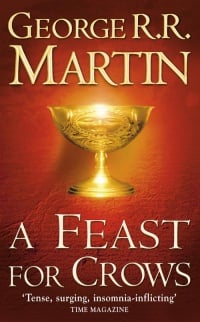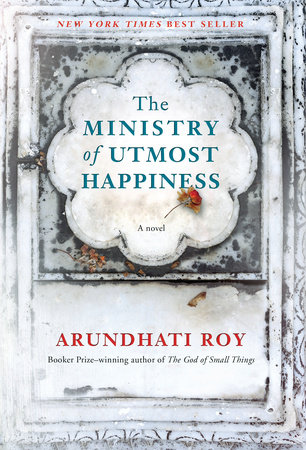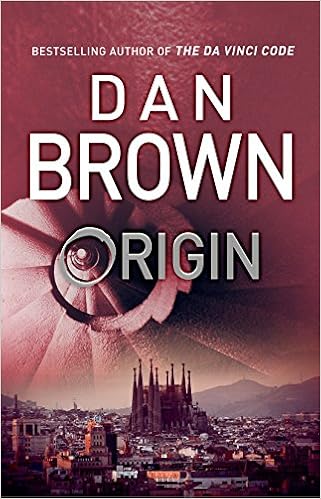Hello everyone!
It's been quite a long time since an update! I'm currently at the end of the college admissions process and at the beginning of the will-they-accept-you phase of crippling anxiety. Now that high school's over, I have an alarmingly large amount of time in hands. The moment my eyes snap open in the morning, true to the routine I've had for the past two years or so, I make a mental list of what I have to do. No word can perfectly capture that momentary shock when you realize that there's no homework, assignment or task waiting to eat up your day. In a way, it feels rather lonely. (o_0) I've constantly been working on something or the other for 12 years, and even for the two years before that, so this kind of emptiness feels quite disarming and frankly, is dangerous when in the hands of an obsessive person like me. Nevertheless, I've realized that it was only after graduation that I connected more closely with many of my classmates than I had done in the past few years. I tried out new restaurants and went to my first stand-up comedy show too (FRONT ROW SEATS YEAH!)!
Anyway, the point of this post was to share with you, dear readers, a particular poem that I had written for my IB English Language and Literature SL course and later even submitted to many of the universities I applied to. The text below is what I've submitted to universities, so it's an edited version of what I submitted to the IB.
I consider this work to be one of my proudest, most heartfelt accomplishments yet. It is often hard to find the right words to capture your mind without overdramatizing it. As mentioned in a
previous post, I believe that only the simplest of words can accurately describe the complexity of your thoughts. They make your reader look beyond the beauty of your words into the beauty of the very concept that you are trying to express. It is precisely this that I've done here and I hope you do enjoy reading it as much as I enjoyed writing it.
***
Both science and poetry have immensely influenced my life, character and values. The former makes me look at the universe in awe, and the latter allows me to introspect and condense my thoughts. Despite science and poetry being viewed as contradicting, both have conjunctly furthered my eagerness to simply learn. Through my blog, I’ve written numerous poems and essays commenting on various facets of the society: parental expectations, anger, the glorification of depression, etc. However, my best work yet was a culmination of all these endeavours in my IB Written Task assignment (a 1000-word creative writing piece with a 300-word rationale), for which I mimicked a popular poem: W. H. Auden’s September 1, 1939. This was both exciting and challenging, as I had to critically analyze the present society through the eyes of a man who lived decades ago, imagine how he would’ve looked at today’s world, and how he would’ve chosen to convey his thoughts. I find these 893 words to be one of my proudest achievements.
***
Rationale
How has the world changed since Auden’s September 1, 1939? This is the question I have attempted to answer by writing a second version of the same poem, set in the 21st century (2016), from the perspective of Auden himself. September 1, 1939 was a poetic analysis of the early-1940s society, just at the brink of war and ideological shifts. Similarly, in this task, I aimed to analyze the present society, with an Audenesque poem - the analytical clarity of Auden’s style would help me achieve my aim more successfully. This poem highlights issues that would’ve irked Auden about today’s world, like morality, body shaming, pollution, terrorism, exploitation of the working class by the economically powerful, the ruination of everyday life by technology, etc. I have also written about issues that have ameliorated from 1939, like LGBT rights and women's rights. Auden would’ve included these to emphasize that there is still time for hope. The audience of the poem includes those who want a critical take on world affairs and humans, such as social critics and psychoanalysts.
In line with Auden’s style of work, I have used various biblical references (‘Serpents’ and ‘biblical tower’), biological terms (‘tumors of blood’), imagery and numerous metaphors (‘flesh of apple and the seeds within’) and simple vocabulary. The main themes covered are universal love, war, totalitarianism and other political and social concerns. I have not adhered to a strict rhyme scheme or meter like Auden, so that readers aren’t distracted from the intended meaning of the poem. The tone is analytical and detached, but dramatic and contemplative. This poem also expresses Auden’s well-known insecurities when it comes to his poems, his frequent revisions and his belief that poems are pointless.
Note: To clear any ambiguities in the meaning of my poem, a word/phrase describing the main idea of a paragraph has been added following each paragraph. Different ideas are separated by a comma.
September 1, 2016
It has been a long ride, 77 years to be precise,
when I wrote a poem strange, one that I now purely despise.
However, if there is one thing these years have taught me,
It would be that the unbending human heart ceases to change,
It’s cruel, wicked, unbending ways.
I am no longer uncertain, no longer afraid –
The bold quest taken in seeking a pattern
has reached its sharp, chilly pinnacle;
The answer, I fear, is horrifyingly simple:
We humans have a death wish,
and a talent to destroy ourselves from within.
I sit now, not in a dive, but in the Garden of myth,
Ruminating, contemplating, thinking
Of universal love, compassion, affection;
Of treachery, violence and ignorance,
O Eve, what have you unleashed?
(Dynamics of the soul)
From the womb till now, corrupted is the race,
That once sang of soaring skyscrapers and rich dreams.
Its needles of steel and plastic pollute paradise,
and it is now crumbling in the destruction left in its wake.
Scholarship, no longer accurate, and the raven, no longer true.
(Urbanization, unreliable academicians and media)
What rays there were, proved to be merely reflections off the moon.
The Messiah, they say, will arrive in all his glory to rescue,
But humans I ask you, what rescue do you imagine to receive,
When you have barred the gates with ugly fumes?
(Pollution)
Love? Love is mercurial. Thumping and fleeting.
It tears from within. Love of all forms,
Platonic and romantic, lesbian and gay,
Are attempts to either fill voids, or create them.
Love today is merely sparks of lust,
What more could one expect?
For we are made of ephemeral dust,
Ravaged by our selfish despairs.
(Nature of love)
We are still tornados, swirling, destroying.
Occurrences at the home, errors of the heart,
Allowed mere rashes on the Earth, to bloom
Into fatal tumors of blood and destruction.
Cross seas and oceans, to join a fanatic cult,
That destroys the flesh of apple and the seeds within.
Thrive in differences, thriving indifferences,
Perhaps another biblical tower is due.
(Scars of childhood impact actions, terrorism)
Stations of knowledge and jurisdiction
soliloquize of fortresses profitable and safe,
promise a Garden of inviolable concrete and cement,
and accomplish these with Alt-Right, a club and mace.
Can only a poet see the missing ‘but’?
The slightest shake of the Earth, can bring down lairs,
and even in the Garden of Eden, the mortal flaws of the body,
are laid, for all to see, naked and bare.
(Politicians deceive and achieve lofty goals with crude methods)
The holy sanctum sanctorum - violated,
Evil demons trespass into the dualistic world
Causing a diabolical manipulation of Plato’s ideal:
Ideal horse, ideal speed, ideal beauty reinvented.
The public children once sang ‘Ring around the Rosie’
Oblivious to Europe’s rosy history.
But now they draw, on the cracked shell of dust,
straight, meandering rivers of crimson,
as the demons rebuild the ideal body.
(Rigidly-defined beauty standards set by society, self-harming)
Frozen forever in a capture of 1989,
Stands a man in the street with modest bags.
Passively aggressive, strikes a revolution,
Stares at the four green monsters before him,
As the State silently curses, “We’ll settle this soon.
Growth of revolutionary citizens, as in the popular picture from 1989 of a Chinese man rebelliously standing in front of army tanks)
Playing its game of throne and power, assured
We need polity and stability to survive lest we are
untrue citizens for what are we without belonging,
Without pride, loyalty and a proud history.
But reality will always show its nature true,
For when hunger is out hunting, you will
Not survive. Forget history, pride and loyalty –
We will stop the game and only rue.
(Governments brainwash citizens with lofty emotions that won't matter in desperate times)
Glassy eyes of children, the young and old ripped
By a fragile monster fashioned by the victim’s own.
Creations have turned upon the creator,
Who tastefully designed his own hell.
The morning cockerel has been replaced by
a dejected, disturbing digital death knell.
The evening polity of chatter and cigar replaced by,
A grand gamut of glowing, glazed eyes under a spell.
(Humans 'murdered' by digital media overkill)
While a poet commands merely a sharp pen,
powerless to defeat the slithering Serpents.
A ray of hope there still may be for I,
Like any poet, can instill hope, destroy futility
And scribble away verdigris and rust.
(Power of poetry)
Time has mended some tears in the cloth,
The laws of attraction match the laws of the heart,
like cannot repel anymore; the unlike needn’t attract either,
‘Don’t ask, don’t tell?’ Well then, I’ll sing and proclaim:
Natural selection will weed out your breed!
The Second Sex rules empires of wealth.
Unlike physical strength mental prowess is eternal.
They bring down the damp, the deaf and the dim,
with grace and cogent analytical clarity.
(Acceptance of LGBTQ+ rights, women empowerment)
The decades have never been more dishonest,
the decades have never been more advanced.
Might we, a species of collective indecisiveness,
learn from history, revise the past?
Might I, a creature of doubt and flawed produce,
journey to the underworlds to bring back Eurydike?
Would you, beleaguered by the Eros in your construct,
become the creature of my dreams, of a poet’s futile exercise?
***
P.S. If you're an IB student scouting for sample Written Assignments, it might help you to know I scored 19/20 for this assignment (rationale + poem).
Goodbye!










